幻聴で思った事その4
2022.10.8(Sat)
福岡大
The Constitution of Japan|Constitution|
Article 11 of the Constitution and the essence of the enjoyment of basic human rights = The enjoyment of all basic human rights by the people of the nation cannot be hindered. can be given.
(2) Obligation to maintain freedoms and rights, Article 12 of the Constitution Prohibition of Abuse Responsibility for Utilization = The freedoms and rights guaranteed to the people by this Constitution must be maintained through the people's unremitting efforts. Citizens must not abuse this, and are always responsible for using it for the public welfare.
(3) Article 13 of the Constitution Respect for the freedom of life and the pursuit of happiness: The people who abandon them are respected as individuals. require the utmost respect on.
(4) Article 14 of the Constitution: Equal under the law denial of the aristocratic system Limits of honor: All citizens are equal under the law, and are subject to political, economic or social relations depending on race, sentiment, sex, social status or family origin. not be discriminated against. "," II: Do not recognize peerage or other aristocratic systems. III: Orders of Honor and other awards conferred are valid only for the lifetime of those who currently have them or will receive them in the future.
(5) Article 15 of the Constitution, Right to Appoint and Dismiss Public Officials Nature of Public Officials Guarantee of universal suffrage secret ballots: It is the inherent right of the people to select and dismiss public officials. II: All civil servants are servants of the whole and not of some III: Universal suffrage for civil servants is guaranteedIV: Voting secrecy in all elections shall not be violated. Electors shall not be held accountable, public or private, for their choices.
(6) Article 16 of the Constitution, right to petition: Any person shall have the right to peacefully petition regarding the enactment, abolishment or revision of legal orders for the dismissal of public officials for damages, and any other matters, and any person shall receive any special treatment for making such a petition. do not have.
(7) Article 17 of the Constitution and public body's liability for compensation: Any person who suffers damages due to illegal acts of public officials may seek compensation from the national government or public body in accordance with the law.
(8) Article 18 of the Constitution Freedom of slavery and servitude: No one shall be subject to any servitude or servitude against his will except in the case of punishment for a crime.
(9) Article 19 of the Constitution Freedom of Thought and Conscience: Freedom of thought and conscience shall not be violated.
(10) Prohibition of Religious Activities in Article 20 of the Constitution Freedom of Religion: Freedom of religion is guaranteed to everyone. No religious organization shall receive any privileges from the State or exercise any political power. II: No person shall be compelled to participate in religious acts, ceremonies, ceremonies or events.III: The State and its institutions shall not engage in religious education or any other religious activity.
(11) Article 21 of the Constitution Prohibition of Censorship of Freedom of Expression in Associations and Associations Confidentiality of Communications: Freedom of expression in associations of associations, press, and other forms of expression shall be guaranteed. Secrecy must not be violated.
(12) Article 22 of the Constitution Freedom to choose occupation Transfer to foreign country Freedom to renounce nationality: Anyone has the freedom to choose residence and occupation as long as it does not violate public welfare freedom is not violated.
(13) Article 33 of the Constitution Academic freedom: Academic freedom is guaranteed. It must be maintained by mutual cooperation on the basis of equal rights.","II: Spouse's Choice of Property Rights Choice of Inheritance and Residence. and the essential equality of the sexes.
(14) Article 24 of the Constitution: Individual dignity and equality of both sexes in family life: Marriage must be established based on the agreement of both sexes and must be maintained through mutual cooperation on the basis that husband and wife have equal rights.II: With respect to choice of property rights of the spouse, choice of inheritance, residence, divorce, and other matters concerning marriage and family, the law shall be enacted with respect to the dignity of the individual and the essential equality of the sexes.
(15) Right to life Article 25 of the Constitution Obligation to guarantee the right to life of the nation: Citizens have the right to lead a healthy and cultured minimum life And you have to strive to improve.
(16) Article 26 of the Constitution The right to receive education Free compulsory education: All citizens shall have the right to receive an education equally according to their ability according to the provisions of the law. Obligation to have the children under their protection receive a general education in accordance with the provisions.Compulsory education is free of charge.
(17) Article 27 of the Constitution, right and obligation to work Standards for working conditions Prohibition of child abuse: All citizens have the right and obligation to work Prescribed III: Children must not overuse this.
(18) Article 27 of the Constitution Workers' Right to Organize Right to Collective Bargaining and Other Rights to Collective Action: Workers' right to organize and right to collective bargaining and other collective action are guaranteed.
(19) Article 29 of the Constitution Property rights: Property rights shall not be violated. This can be used for public welfare purposes.
(20) Obligation to pay taxes under Article 30 of the Constitution: Residents of the ward are obligated to pay taxes as stipulated by law.
(21) Article 31 of the Constitution guarantees statutory procedures: No one shall be deprived of life or liberty or subject to other criminal penalties unless he follows the procedures established by law.
(22) Right to be tried in Article 32 of the Constitution: No person shall be deprived of the right to be tried in court.
(23) Guarantee against Arrest, Article 33 of the Constitution: No person shall be arrested except on a warrant issued by a competent judicial official and specifying the offense on which the offense is based, except in the case of arrest for red-handed crime.
(24) Guarantee against detention by Article 34 of the Constitution: No person shall be detained or detained unless he or she is immediately informed of the reasons and given the right to seek counsel immediately. Also, no one will be detained without a justifiable reason, and if requested,The reasons shall immediately be laid down in a public statute in the presence of the principal and counsel.
(25) Guarantee against burglary and seizure of residence, Article 35 of the Constitution: The right of any person not to be subject to burglary and seizure of his residence documents and belongings shall be exercisable on just cause, except in the case of Article 33 of the Constitution. Inviolable unless there is a "," and a warrant specifying the place to be searched and what is to be seized.
(26) Article 36 of the Constitution Prohibition of Torture and Cruel Punishment: Torture and cruel punishment by public officials are absolutely prohibited.
(27) Rights of Criminal Defendants, Article 37 of the Constitution: In all criminal cases, defendants have the right to a speedy and public trial by an impartial court. have a full opportunity to be heard against him and have the right, at public expense, to obtain witnesses through compulsory proceedings on his own behalf.III: A criminal defendant may in any case request a qualified counsel. If the defendant is unable to request this on his/her own, the state will attach it.
(28) Article 38 of the Constitution Prohibits Coercion of Detrimental Statements Admissibility of Confession: No one shall be compelled to make statements that are detrimental to him or herself. I cannot prove this.
(29) Prohibition of Non-Retroactive Double Punishment in Article 39 of the Constitution's Criminal Law: No person shall be held criminally responsible for an act that was lawful at the time it was committed or for which he or she has been acquitted, nor for the same crime. No further criminal liability will be imposed.
2022.10.8(Sat)
福岡大
The Constitution of Japan|Constitution|
Article 11 of the Constitution and the essence of the enjoyment of basic human rights = The enjoyment of all basic human rights by the people of the nation cannot be hindered. can be given.
(2) Obligation to maintain freedoms and rights, Article 12 of the Constitution Prohibition of Abuse Responsibility for Utilization = The freedoms and rights guaranteed to the people by this Constitution must be maintained through the people's unremitting efforts. Citizens must not abuse this, and are always responsible for using it for the public welfare.
(3) Article 13 of the Constitution Respect for the freedom of life and the pursuit of happiness: The people who abandon them are respected as individuals. require the utmost respect on.
(4) Article 14 of the Constitution: Equal under the law denial of the aristocratic system Limits of honor: All citizens are equal under the law, and are subject to political, economic or social relations depending on race, sentiment, sex, social status or family origin. not be discriminated against. "," II: Do not recognize peerage or other aristocratic systems. III: Orders of Honor and other awards conferred are valid only for the lifetime of those who currently have them or will receive them in the future.
(5) Article 15 of the Constitution, Right to Appoint and Dismiss Public Officials Nature of Public Officials Guarantee of universal suffrage secret ballots: It is the inherent right of the people to select and dismiss public officials. II: All civil servants are servants of the whole and not of some III: Universal suffrage for civil servants is guaranteedIV: Voting secrecy in all elections shall not be violated. Electors shall not be held accountable, public or private, for their choices.
(6) Article 16 of the Constitution, right to petition: Any person shall have the right to peacefully petition regarding the enactment, abolishment or revision of legal orders for the dismissal of public officials for damages, and any other matters, and any person shall receive any special treatment for making such a petition. do not have.
(7) Article 17 of the Constitution and public body's liability for compensation: Any person who suffers damages due to illegal acts of public officials may seek compensation from the national government or public body in accordance with the law.
(8) Article 18 of the Constitution Freedom of slavery and servitude: No one shall be subject to any servitude or servitude against his will except in the case of punishment for a crime.
(9) Article 19 of the Constitution Freedom of Thought and Conscience: Freedom of thought and conscience shall not be violated.
(10) Prohibition of Religious Activities in Article 20 of the Constitution Freedom of Religion: Freedom of religion is guaranteed to everyone. No religious organization shall receive any privileges from the State or exercise any political power. II: No person shall be compelled to participate in religious acts, ceremonies, ceremonies or events.III: The State and its institutions shall not engage in religious education or any other religious activity.
(11) Article 21 of the Constitution Prohibition of Censorship of Freedom of Expression in Associations and Associations Confidentiality of Communications: Freedom of expression in associations of associations, press, and other forms of expression shall be guaranteed. Secrecy must not be violated.
(12) Article 22 of the Constitution Freedom to choose occupation Transfer to foreign country Freedom to renounce nationality: Anyone has the freedom to choose residence and occupation as long as it does not violate public welfare freedom is not violated.
(13) Article 33 of the Constitution Academic freedom: Academic freedom is guaranteed. It must be maintained by mutual cooperation on the basis of equal rights.","II: Spouse's Choice of Property Rights Choice of Inheritance and Residence. and the essential equality of the sexes.
(14) Article 24 of the Constitution: Individual dignity and equality of both sexes in family life: Marriage must be established based on the agreement of both sexes and must be maintained through mutual cooperation on the basis that husband and wife have equal rights.II: With respect to choice of property rights of the spouse, choice of inheritance, residence, divorce, and other matters concerning marriage and family, the law shall be enacted with respect to the dignity of the individual and the essential equality of the sexes.
(15) Right to life Article 25 of the Constitution Obligation to guarantee the right to life of the nation: Citizens have the right to lead a healthy and cultured minimum life And you have to strive to improve.
(16) Article 26 of the Constitution The right to receive education Free compulsory education: All citizens shall have the right to receive an education equally according to their ability according to the provisions of the law. Obligation to have the children under their protection receive a general education in accordance with the provisions.Compulsory education is free of charge.
(17) Article 27 of the Constitution, right and obligation to work Standards for working conditions Prohibition of child abuse: All citizens have the right and obligation to work Prescribed III: Children must not overuse this.
(18) Article 27 of the Constitution Workers' Right to Organize Right to Collective Bargaining and Other Rights to Collective Action: Workers' right to organize and right to collective bargaining and other collective action are guaranteed.
(19) Article 29 of the Constitution Property rights: Property rights shall not be violated. This can be used for public welfare purposes.
(20) Obligation to pay taxes under Article 30 of the Constitution: Residents of the ward are obligated to pay taxes as stipulated by law.
(21) Article 31 of the Constitution guarantees statutory procedures: No one shall be deprived of life or liberty or subject to other criminal penalties unless he follows the procedures established by law.
(22) Right to be tried in Article 32 of the Constitution: No person shall be deprived of the right to be tried in court.
(23) Guarantee against Arrest, Article 33 of the Constitution: No person shall be arrested except on a warrant issued by a competent judicial official and specifying the offense on which the offense is based, except in the case of arrest for red-handed crime.
(24) Guarantee against detention by Article 34 of the Constitution: No person shall be detained or detained unless he or she is immediately informed of the reasons and given the right to seek counsel immediately. Also, no one will be detained without a justifiable reason, and if requested,The reasons shall immediately be laid down in a public statute in the presence of the principal and counsel.
(25) Guarantee against burglary and seizure of residence, Article 35 of the Constitution: The right of any person not to be subject to burglary and seizure of his residence documents and belongings shall be exercisable on just cause, except in the case of Article 33 of the Constitution. Inviolable unless there is a "," and a warrant specifying the place to be searched and what is to be seized.
(26) Article 36 of the Constitution Prohibition of Torture and Cruel Punishment: Torture and cruel punishment by public officials are absolutely prohibited.
(27) Rights of Criminal Defendants, Article 37 of the Constitution: In all criminal cases, defendants have the right to a speedy and public trial by an impartial court. have a full opportunity to be heard against him and have the right, at public expense, to obtain witnesses through compulsory proceedings on his own behalf.III: A criminal defendant may in any case request a qualified counsel. If the defendant is unable to request this on his/her own, the state will attach it.
(28) Article 38 of the Constitution Prohibits Coercion of Detrimental Statements Admissibility of Confession: No one shall be compelled to make statements that are detrimental to him or herself. I cannot prove this.
(29) Prohibition of Non-Retroactive Double Punishment in Article 39 of the Constitution's Criminal Law: No person shall be held criminally responsible for an act that was lawful at the time it was committed or for which he or she has been acquitted, nor for the same crime. No further criminal liability will be imposed.











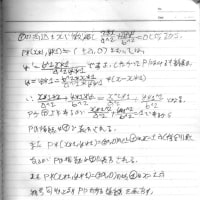
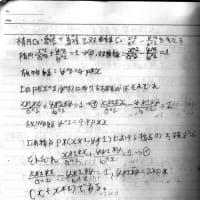
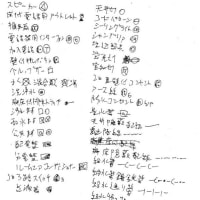
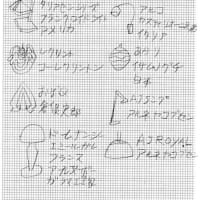
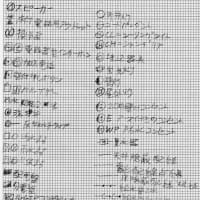
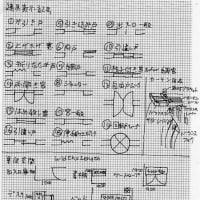
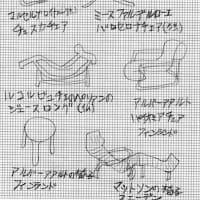
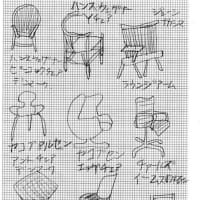
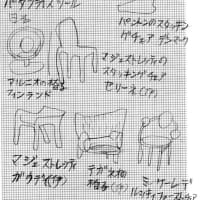
※コメント投稿者のブログIDはブログ作成者のみに通知されます